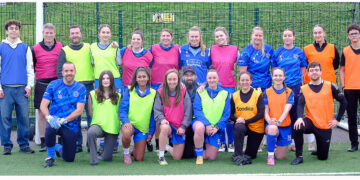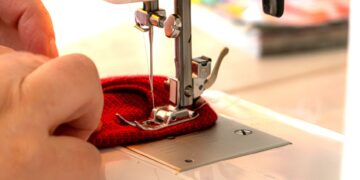Cats involved in road traffic accidents make up more than 4% of the cats treated at veterinary clinics.
Sadly it is a common injury we see here at St Vincents. I lost one of my own cats to the road five years ago and one of our nurse’s cats was recently hit and is currently recuperating after an accident in which he sustained a broken pelvis.
Did you know young cats aged six months to six years are at most risk of road traffic accidents and male cats are 1.3 times more at risk than female cats?
If you think your pet has been hit by a car one of the most important things you can do is remain calm, call us and head straight down to the practice.
Please be very careful transporting them.
Broken bones unfortunately are very common and too much movement can cause further discomfort.
A small towel can usually be used to safely move your cat and, if possible, place them into a pet carrier so that they are secure. Keeping them warm is also important as they can quickly develop shock.
Cats will bite and scratch when frightened and in pain so please take care handling them if you suspect they have been involved in a traffic accident.
It is not always easy to be sure whether a cat has been hit unless you witnessed the accident.
Some cats may return home after an accident and just seem a little out of sorts and quieter.
Common signs may include bleeding wounds, split claws, limping, changes in breathing patterns or effort, any pain or signs of shock such as feeling cold or pale gums.
So what can we do to help prevent traffic accidents? Neutering male cats can significantly reduce the risk of accidents. Male cats will roam over large areas and cross busy roads looking for female cats. If you live near a busy road, it may be a good idea to keep your cats in at night. If your cat wears a collar, a reflective collar may help drivers see them but always make sure it is a safety collar that will break if the cat gets caught.
Cats may be kept indoors if you are near a busy road but it is very important that they have and lots of toys and places to climb and scratch so they can express all of their natural behaviours.
If you ever hit a cat or a dog please stop straight away if possible, or when it is safe to do so. We would also suggest taking them to a veterinary surgery, even if deceased, as if they are microchipped we can inform the owner.
This is another good reason to microchip your cats which is not as yet a legal requirement. Please contact us here at St Vincents if you would like to discuss the different microchips available.

Katie Love is a veterinary surgeon at St Vincents Veterinary Surgery, an independent practice offering personal care for all your pets. Katie has a keen interest in feline medicine and can be contacted at the surgery if you have any concerns about your pet’s health.
To find out more visit www.stvincentsvets.co.uk or call the practice on 0118 979 3200 to arrange a visit and meet the team.

















































